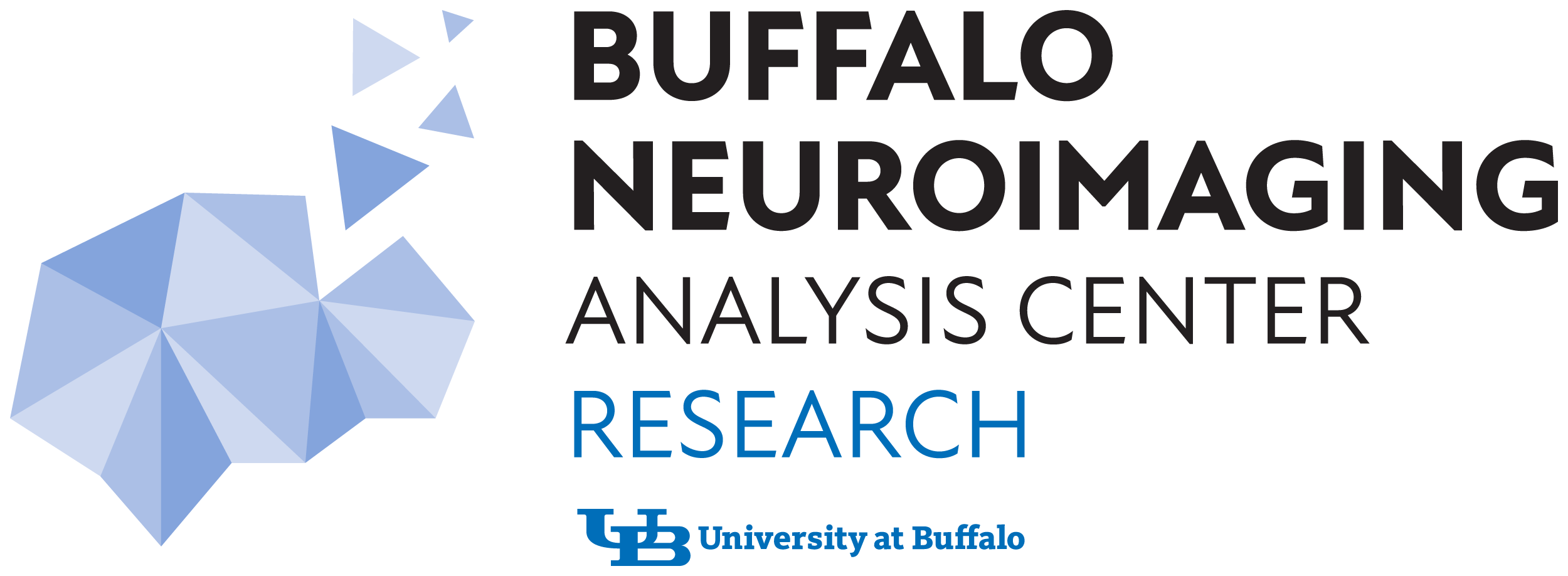Cognition and personality are important areas that can be affected by MS and other neurological diseases and disorders. The Buffalo Neuroimaging Analysis Center (BNAC) is a dedicated research center and a world leader in measuring these factors and relating them directly to underlying brain structural and functional connectomics. BNAC’s current interests also concentrate on the development of new measures of processing speed and working memory capacity. BNAC has published numerous peer-reviewed articles on brain connectomics and cognitive outcomes in MS and other neurological disorders.
BNAC collaborates closely with Dr. Ralph HB Benedict, the BNAC’s Neuropsychological Advisor and the Director of Neuropsychological Services for the Department of Neurology, University at Buffalo. Our collaborative research program was one the first in the field to show that gray matter (GM) atrophy plays a particularly prominent role in cognitive decline in MS. While white matter (WM) demyelination is also correlated with cognitive impairment, several studies showed that central and GM atrophy indices accounted for the most variance in predicting cognitive impairment in MS patients. In particular, BNAC was the first to show that the paired thalamic nuclei are essential GM structures related to cognitive impairment in MS. BNAC showed that location, unique neurological functions, widespread cortical and subcortical connections and vulnerability to MS pathology from the earliest clinical disease stages make the thalamus a critical structure for examining neurodegeneration in MS. BNAC also showed that progressive pathology of the thalamus occurs in all different MS disease types and that thalamic volume loss can be detected even in pediatric MS patients.
Perhaps the most important contribution of Dr.Benedict’s research is the development of the Minimal Assessment of Cognitive Function in MS (MACFIMS) cognitive battery. He led an expert panel of neuropsychologists and neurologists to develop an ideal minimal battery for the assessment of cognitive function in MS. The proposed tests were chosen because they provided: a) standardized assessment, with a commercially available test manual; b) good normative data; c) adequate range, minimal ceiling and floor effects; d) good test/retest reliability; e) published findings showing that the battery discriminates MS patients from controls; f) equivalent alternate forms; and g) the ability to administer the battery briefly and easily. This battery became a hallmark of cognitive assessment for patients with MS over the last decade. More recently, Dr. Benedict led another international initiative to recommend and support a cognitive assessment for MS patients that is brief, practical and universal. The result of this initiative was the development of the Brief International Cognitive Assessment for MS (BICAMS), which is rapidly becoming the most used cognitive battery for the assessment of cognitive symptoms in MS patients.
Most recently, BNAC Director, Dr. Robert Zivadinov, BNAC’s Directors of Neuroinformatics (Dr. Michael G. Dwyer) and Integration (Dr. Niels Bergsland), in collaboration with Dr. Benedict, organized a multidisciplinary team of fellows, MSc, PhD students and post-docs, that is investigating all aspects of research and treatment of neuropsychological conditions related to MS and dementias. Drs. Fuchs, Jakimovski, Modica and Weinstock, current post-doc and former PhD students, contributed significantly to better understanding of the state-of-the art structural and functional MRI connectivity measurements and their relationship with neuroplasticity, recovery, and cognition.
For more information about cognitive imaging endpoints, click here
FEATURED RECENT BRAIN CONNECTOMICS AND COGNITIVE OUTCOME STUDIES
- Balconi J, Jaworski M, Mirmosayyeb O, Woodbeck M, Weinstock Z, Zak N, Cruz S, Dong X, Camarata S, Santivasci C, Bergsland N, Weinstock-Guttman B, Dwyer MGD, Zivadinov R, Covey T, Benedict RHB. Auditory test of processing speed: further validation and initial assessment of test-retest reliability. Mult Scler Rel Dis 2025;105:106867. doi: 10.1016/j.msard.2025.106867. [Open Article]
- Santivasci C, Mirmosayyeb O, Jaworski M III, Balconi J, Woodbeck M, Bergsland N, Zivadinov R, Dwyer MG, Bianca Weinstock-Guttman B, Benedict RHB. Personality traits and disease progression in multiple sclerosis: effects of neuroticism and conscientiousness. Mult Scle Rel Dis 2025;100:106559. [Open Article]
- Fuchs TA, Ziccardi S, Jelgerhuis JR, Barkhof F, Killestein J, Strijbis EMM, Zivadinov R, Weinstock-Guttman B, Schoonheim MM, Calabrese M. Practical clinical predictions: Verona validation of the DAAE Score, a tool for estimating individual patient risk of conversion to secondary progressive multiple sclerosis. Mult Scler Rel Dis 2025;101:106586. [Open Article]
- Fuchs TA, Zivadinov R, Pryshchepova T, Weinstock-Guttman B, Dwyer MG, Benedict RHB, Bergsland N, Jakimovski D, Uher T Jelgerhuis JR, Barkhof F, Uitdehaag BMJ, Killestein J, Strijbis EMM, Schoonheim MM. Clinical risk stratification; Development and validation of DAAE score, a tool for estimating patient risk of transition to secondary progressive multiple sclerosis. Mult Scler Rel Dis 2024;89:105755. [Open Article]
Contact Our Team Today
Part of BNAC’s mission is to help share our tools and experience with our colleagues and other industry partners. If you need help with advanced brain connectomics and cognitive outcomes in your research or clinical trial work, please reach out to discuss how we can assist. Our group brings decades of experience and expertise to every collaborative study and service partnership.

